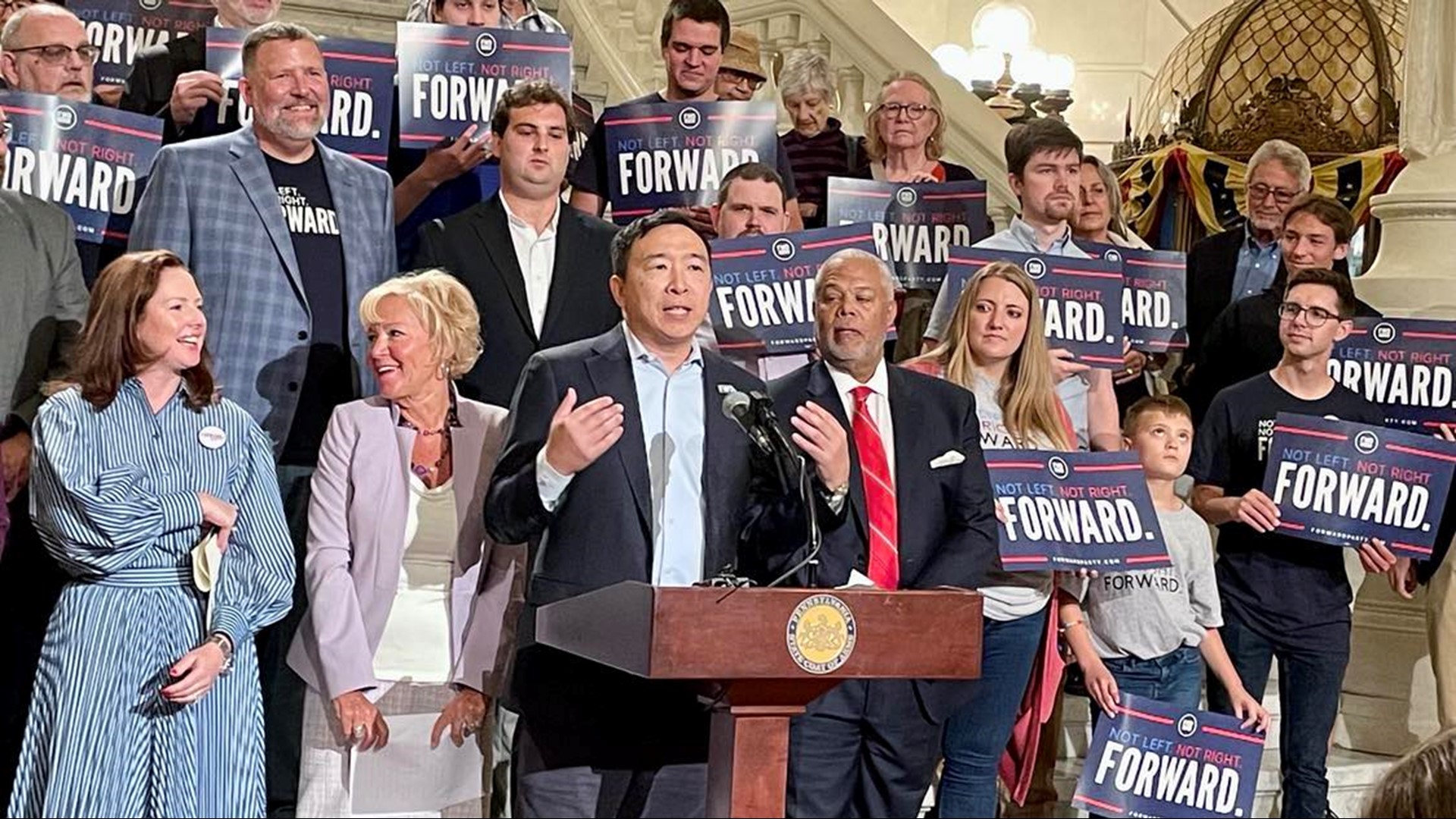HARRISBURG, Pa. — Frustrated by partisan polarization, two Democratic state senators are now affiliated with the Forward Party, founded by 2020 presidential candidate Andrew Yang.
State Sens. Anthony Wiliams (D-Philadelphia/Delaware) and Lisa Boscola (D-Lehigh/Northampton) said they felt pressured by their caucus to always vote with the party, regardless of what they believed.
“I refuse to be bullied or intimidated by an ideology that frankly doesn’t represent the interests of my people. I don’t care if you’re a Democrat or not,” Williams said.
The Forward Party is billed as a centrist alternative to the Democratic and Republican political parties.
More than half of Americans think the existing political parties “do such a poor job that a third major party is needed,” according to a Gallup poll.
“The Forward Party is here to provide those resources to legislators that want to take a stand for a better form of politics and get away from the ideological warfare that is unfortunately defining too much of our news today instead of solving the problems where we work and live,” Yang said.
The Forward Party is not legally recognized as a political party in Pennsylvania, though it is making efforts to get ballot access in the state.
For that reason, two state senators affiliating with the Forward Party will remain officially Democrats. The Forward Party in Pennsylvania will for now act more as an intra-party caucus, similar to the U.S. House Problem Solvers Caucus.
Forward Party organizers said their ultimate goal is to put forward party candidates on ballots across the country running officially with the party.
For now, though, they are dealing with the structural elements of America’s democracy that make it almost impossible for third parties to win elections. Historically third parties have failed throughout the history of U.S. elections.
U.S. democracy is based on a winner-takes-all system in which each political district gets one representative, and the representative with the most votes wins, even if they did not receive a majority of votes. Also called plurality voting, it disincentives smaller party candidates because they’re unlikely to win a plurality over the two major parties. In addition, voters may be wary of choosing the smaller party because each vote not made for one of the major parties gives a relative advantage to the other major party.
“Any time a third party is on the ballot there is concern from one of the two major parties closest to that third party that they’re just going to skim votes away from them and act as a spoiler,” said Stephen Medvic, professor of government at F&M College.
The U.S.’s majoritarian system of representation thus tends to favor a two-party system.
The Forward Party is calling for structural reforms that would make third party candidates more viable in U.S. elections, such as ranked choice voting and proportional representation. Both are widely used in other democracies around the world.
“We need to be able to examine those kinds of reforms,” Yang said.
Pennsylvania lawmakers have also introduced legislation for open primaries that would allow unaffiliated voters to have a say in party primary elections.
Yang said he was not running for president again in 2024, but that the Forward Party is sorely needed ahead of the 2024 presidential election.
“You’re looking at a potential Biden/Trump rematch that two thirds of Americans don’t want,” he said. “So that’s a sign of just how out of touch our politics have become.”
The Pennsylvania Senate Democratic Caucus could not be reached for comment on the lawmakers' affiliation announcement.

